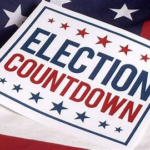To print this article, all you need is to be registered or login on Mondaq.com.
Our Firm has recently reported (here and here) on courts’ application of the New
York State Human Rights Law (NYSHRL) and the New York City Human
Rights Law (NYCHRL) to nonresident plaintiffs asserting employment
discrimination claims, and specifically on courts’
interpretation of the rule announced in Hoffman v. Parade
Publications that nonresidents must be able to “plead and
prove that the alleged discriminatory conduct had an impact
within” the State and City.
A March 2024 decision from the United States Court of Appeals
for the Second Circuit, in King v. Aramark Services, Inc.,
provides a significant new take on the issue, taking an arguably
very narrow view of the degree of in-State (and in-City) impact
required.
The plaintiff in King alleged that her employer had
subjected her to a hostile work environment, discrimination, and
retaliation on the basis of her sex, in violation of the NYSHRL.
King had been hired to oversee operations in Virginia and West
Virginia, and had rented a home and lived during the relevant
period primarily in Virginia in order to do her job. King alleged,
however, that under her employment arrangement, the company
authorized her to work remotely on days when she didn’t have to
be at a specific client facility, that she did so regularly and on
numerous occasions from both her Virginia home and her New York
home, where she lived with her fiancée and son.
King argued that, because she had received permission to work
from her New York home for a significant period of time, the impact
of Aramark’s alleged discrimination against her was felt by her
in the State.
The Second Circuit, however, somewhat surprisingly disagreed,
finding that “any discriminatory impact felt in the state was
incidental” and could not give rise to employer liability
under the NYSHRL.
The court said that Hoffman‘s reasoning was
instructive. There a Georgia resident who worked in Atlanta, for a
company whose headquarters were in New York, claimed that the
company had violated the NYSHRL (and the NYCRHL) because the
allegedly discriminatory decision to fire him had been made and
executed in New York City. That employee did not work in New York
State or New York City, and would at most visit the City for
quarterly management meetings. The Hoffman court concluded
that all this was insufficient to plead an “impact” in
the respective jurisdictions – at most, the plaintiff had
“pleaded that his employment had a tangential connection to
the city and state.”
For the King court, such analysis was sufficiently
instructive to rule that King – even though she alleged
discriminatory acts reaching into the State (rather than
merely originating from the State) – could not
satisfy the impact requirement. The court held that the fact that
King did “some of her work from her New York
residence, and some of the discriminatory conduct
[alleged] took place while she was working from her New York home
office,” did not change its conclusion. (emphasis in
original). It stated that “the lion’s share” of the
alleged discriminatory conduct was directed to her in Virginia, not
New York. And according to the court, because “most” of
the acts comprising her sex-based hostile work environment claim
were directed at her and her work in Virginia, any impact she
experienced in New York was “tangential” or
“incidental,” and therefore inadequate to sustain a claim
under the NYSRHL. And in affirming the dismissal of King’s
claims, the court also distinguished the caselaw that King relied
on in support of her argument by observing that in most of the
cited cases the plaintiff’s “primary site of work”
was a home office in New York.
The King decision establishes a narrow, and some might
protest overly restrictive, view of what is required to satisfy the
impact test. A plaintiff’s allegations that she worked in the
State (or in the City), in a New York home, for significant periods
of time and on numerous occasions (even if not the majority of her
working time) can now be held inadequate to invoke the NYSHRL (and
NYCHR) in New York federal courts.
Yet Hoffman itself – i.e., the very New
York State court case on which King principally relied for
guidance – states that the NYSHRL “permits those who
work in the state to invoke its protections” and that the
NYCHRL “expands those protections to nonresidents who work in
the city.” If, hypothetically, the plaintiff in
Hoffman had also regularly worked in New York City, would
the New York State Court of Appeals have really still characterized
the impact he felt in the State/City as merely
“tangential”?
In all events, the federal imposition of an impact standard that
seems to hinge on assessments such as “most” or
“primary” or “lion’s share” will likely be
challenged by future plaintiffs in New York State courts, who will
argue that requiring such a high degree of impact is antithetical
to the protections that the State and City Human Rights Laws were
designed to provide. New York State courts are not bound by the
Second Circuit’s decision, and those courts might ultimately
enforce a less-stringent take on the degree of in-State and in-City
impacts that plaintiffs must allege in order to keep their claims
in court.
The content of this article is intended to provide a general
guide to the subject matter. Specialist advice should be sought
about your specific circumstances.
POPULAR ARTICLES ON: Employment and HR from United States
#Circuit #Takes #Narrow #View #InStateInCity #Impact #Required #York #Discrimination #Claims #Discrimination #Disability #Sexual #Harassment











